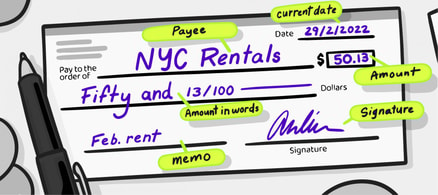What is a savings account?
A savings account is an account with a bank, financial institution, or credit union where you can save your money while it’s not in active use.
Savings accounts pay you interest on your balance, usually on a monthly or annual basis.
Credit unions and banks typically provide savings accounts, and there are some online banks as well. You can open a bank account at a physical location or online.
More: Find the best high-yield savings account
Streamline your debt repayment
Having a single loan to pay off makes it easier to manage your payments, and you can often get a better interest rate than what you might be paying on credit cards and car loans.
Fiona is an online marketplace offering personalized loan options based on your unique financial situation.
When you consolidate your debt with a personal loan through Fiona, you can roll your payments into one monthly installment. Find a lower interest rate and pay down your debt faster with Fiona today.
Find your ratePros and cons of savings accounts
Pros
You’ll want to go with a savings account at an institution that is insured by the Federal Deposit Insurance Corporation (FDIC) so that the money you deposit is protected. Funds in a regular savings account are easy to liquidate and you can transfer funds to a checking account or other account quickly. There’s usually no account minimum, so you can open one right away and deposit funds.
Cons
The interest rates for savings accounts are usually lower than other accounts, and you usually aren’t able to write checks from a savings account. You’ll need to transfer funds to your personal checking account and write a check from there.
More: Best high-yield savings accounts
What is a money market account?
A money market account, or MMA, is like a savings account in that you can deposit money and earn interest on the balance over time. A money market account may be offered by a bank, online bank or credit union. Unlike savings accounts, these accounts offer some of the same benefits as checking accounts such as the ability to write checks and withdraw cash at an ATM.
A money market account shouldn’t be confused with a money market fund, which is a mutual fund that you could buy through an investment account.
Stop overpaying for home insurance
Home insurance is an essential expense – one that can often be pricey. You can lower your monthly recurring expenses by finding a more economical alternative for home insurance.
SmartFinancial can help you do just that. SmartFinancial’s online marketplace of vetted home insurance providers allows you to quickly shop around for rates from the country’s top insurance companies, and ensure you’re paying the lowest price possible for your home insurance.
Explore better ratesPros and cons of a money market
Pros
Money market accounts offer higher interest rates compared to savings accounts. You can easily liquidate your cash, withdraw funds and write checks. Money market accounts also allow you to use a debit card to make purchases. Some money market accounts offer cash back on certain purchases or at certain stores.
Cons
Oftentimes you need a larger minimum balance for a money market account. There might also be limits on the number and frequency of transactions.
How is a money market different from a savings account?
With a money market account, it’s easier to use your money because you can write checks and buy things with a debit card. A money market account is as flexible and easy as a checking account but usually earns more interest.
Savings accounts are sometimes not as easy to use because you can't write checks or use a debit card. You can transfer savings to your checking account, but sometimes there's a limit to the number of transactions between accounts. Sometimes additional steps might be required to withdraw cash, such as when you want to do an electronic transfer.
In general, money market accounts offer higher interest rates — but require larger account minimums than traditional savings accounts.
Money market accounts vs. savings accounts
| Money Market Account | Savings Account | |
|---|---|---|
| Interest Rates | Higher interest rate than traditional savings accounts | Typically lower interest rate than money market accounts |
| Minimum Balances | Requires higher minimum balance to get best APY | Low or no minimum balance required for most accounts |
| Checks and Withdrawals | Can write checks, withdraw funds, use an ATM and debit card | Can withdraw funds and use an ATM, but can’t write checks or use a debit card |
| Ease to Liquidate | Relatively easy to liquidate or transfer funds | Relatively easy to liquidate or transfer funds |
| FDIC Insured | Yes | Yes |
| Monthly Fees | Typically no fees, unless you don’t meet minimum balance requirements | Typically no fees, unless you don’t meet minimum balance requirements |
| Best Features | Typically offers higher interest rate and offers the ability to write checks and use a debit card | Low or no minimum deposit or balance requirements |
Choosing between a money market and savings account
Choosing between a money market account or a savings account depends on your current financial situation or what you want out of a savings account.
To start, how much are you able to deposit? If you can meet the minimum requirements of a money market account, it may be the better route since the interest rates are usually higher.
But if you are not in a position to meet the minimum deposits, and would rather have an easy option that’s connected to a checking account, a traditional or high-yield savings account may be the way to go. You can compare multiple accounts to find the right one for you.
In short, money market accounts offer higher interest rates and provide more flexibility for withdrawing cash and making purchases. They tend to require a higher minimum balance amount, though.
No matter which type of account you decide on, look at the fine print and details, including the interest rate, minimum balance, any transaction limits or monthly fees.
Sponsored
Follow These Steps if you Want to Retire Early
Secure your financial future with a tailored plan to maximize investments, navigate taxes, and retire comfortably.
Zoe Financial is an online platform that can match you with a network of vetted fiduciary advisors who are evaluated based on their credentials, education, experience, and pricing. The best part? - there is no fee to find an advisor.








